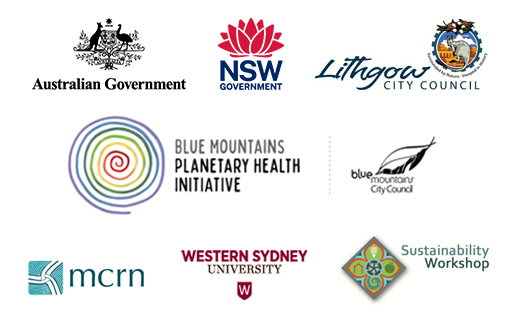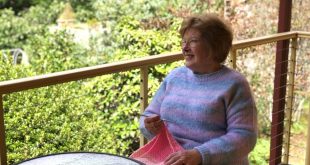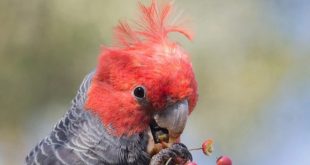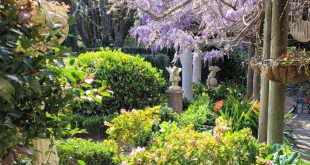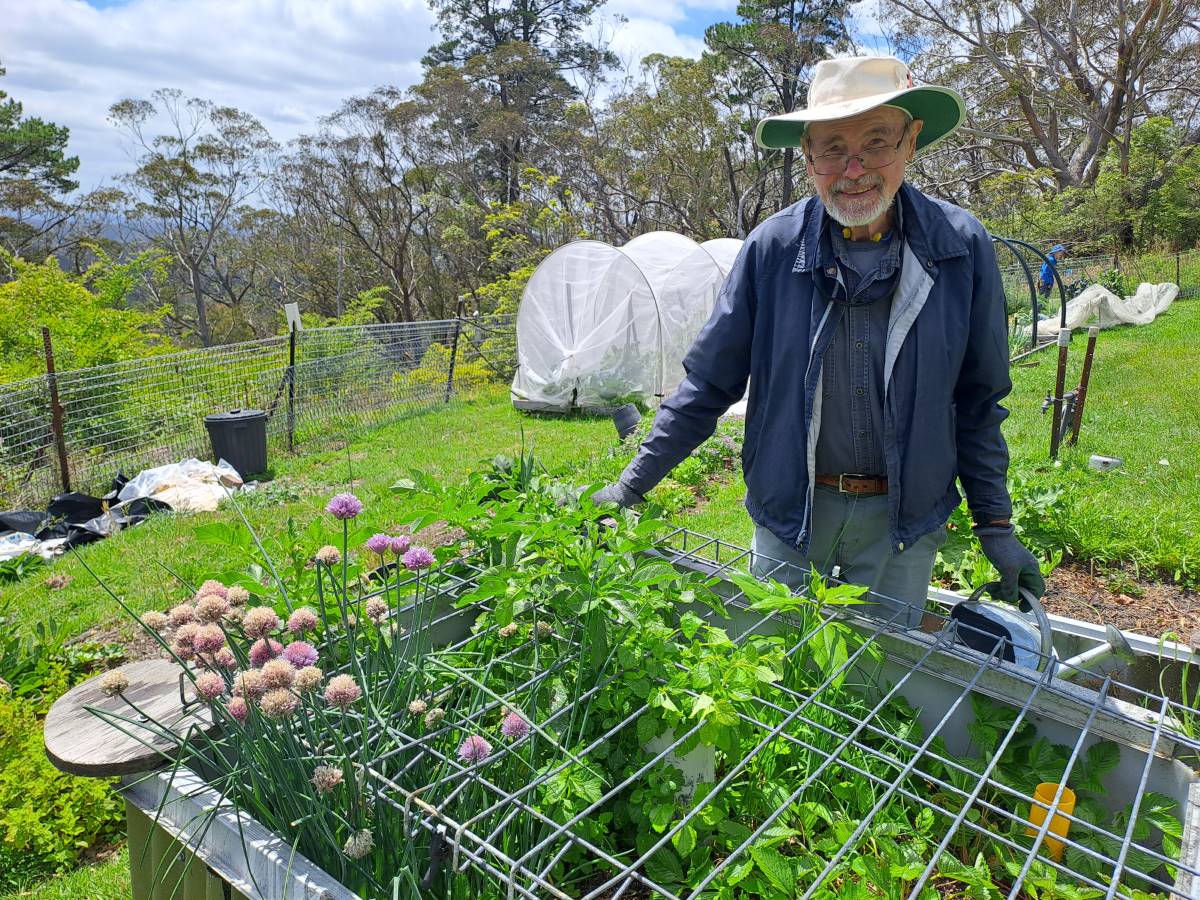
Ray Kennedy at Mid Mountains Community Gardens
Story and photos by Belle Butler
Growing fruit and vegetables is immensely gratifying, on top of the healthy food it produces and the money it can save compared to supermarket prices. But doing it consistently well is hard: and that’s where Community Gardens are an invaluable resource. Visit Mid Mountains Community Garden with Belle Butler to dig deeper.
Key Points:
- Community gardening provides an opportunity to grow food without the pressure of maintaining a veggie patch all on your own.
- Community gardening utilises the skills, knowledge and hard work of many, allowing for better growing systems, more success and faster maintenance.
- Community gardens build resilience at a local level by strengthening relationships, increasing food security, and providing opportunities to upskill and knowledge swap.
I have a complex relationship with my veggie patches. When we are on good terms, I lavish them with my attention and love, and they flourish and thrive and offer their bountiful fruit in return. We meet each other’s needs and show our gratitude and respect in how we provide for each other.
But then I withdraw. Sometimes for a few days, other times inflicting long bouts of neglect while I busy myself elsewhere. There are many distractions that come between us, and my veggie patches are not particularly accepting of my multiple life-affairs. They demand consistent attention. And if they don’t get it, they show their displeasure. They wilt. They shrivel. They refuse to provide. And then the weeds come in and declare the relationship over.
My show of intermittent love is the result of a particularly busy time of life. At least, that’s the excuse I’m going with, and one that I’ve commonly heard from others attempting similar relationships in their own backyards. The good news is, just because you can’t keep up your end of the deal in a monogamous relationship with your veggie patch at home, it doesn’t have to be the end! Polyamory in the veggie patch world does wonders for all involved.
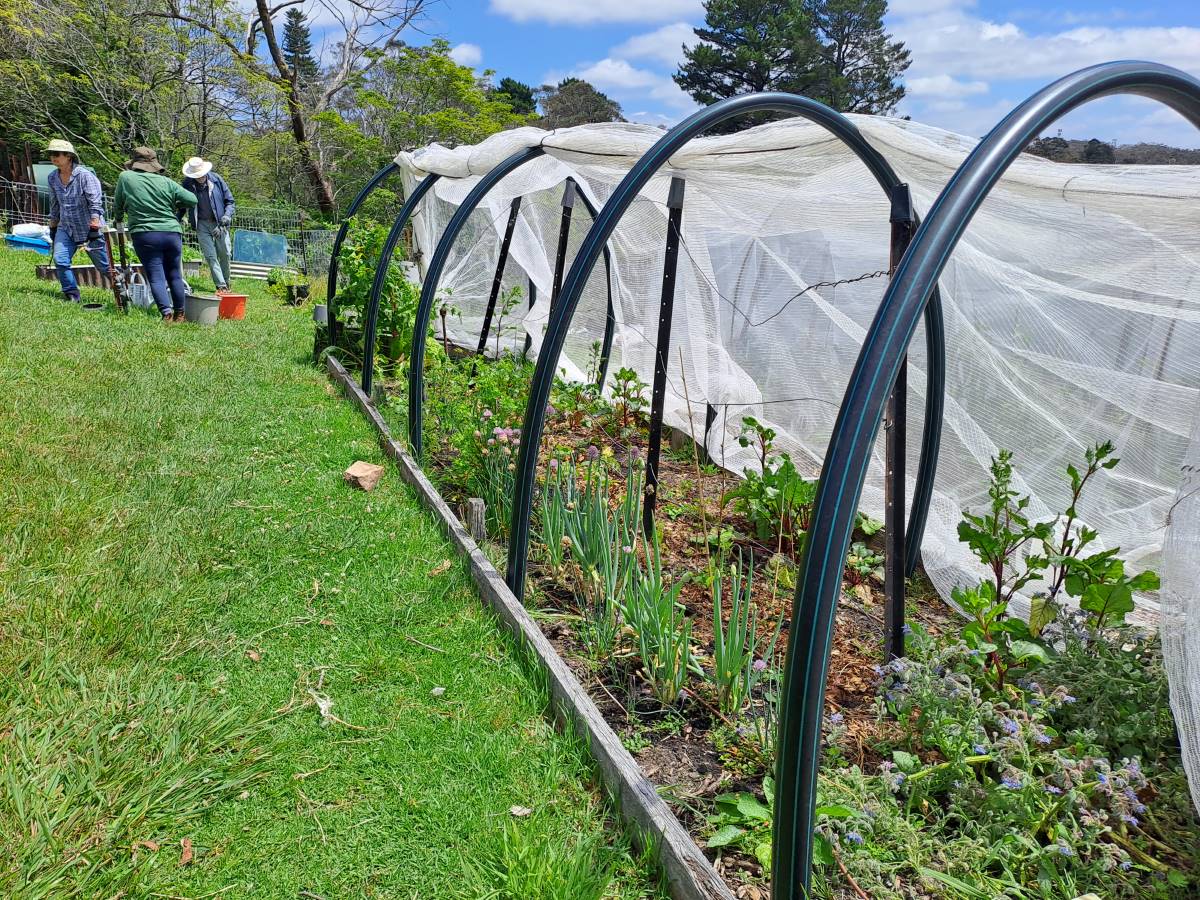
Volunteers gather at Mid Mountains Community Garden.
In all seriousness, community gardens, like the Mid Mountains Community Garden on Queens Road in Lawson, offer an excellent opportunity to upskill, connect with others and grow food, without the pressure of maintaining a patch all on your own.
Further, community gardening builds resilience at a local level by strengthening relationships, increasing food security, providing an opportunity to share tips and knowledge, problem solve, and work towards building self-sustaining communities.
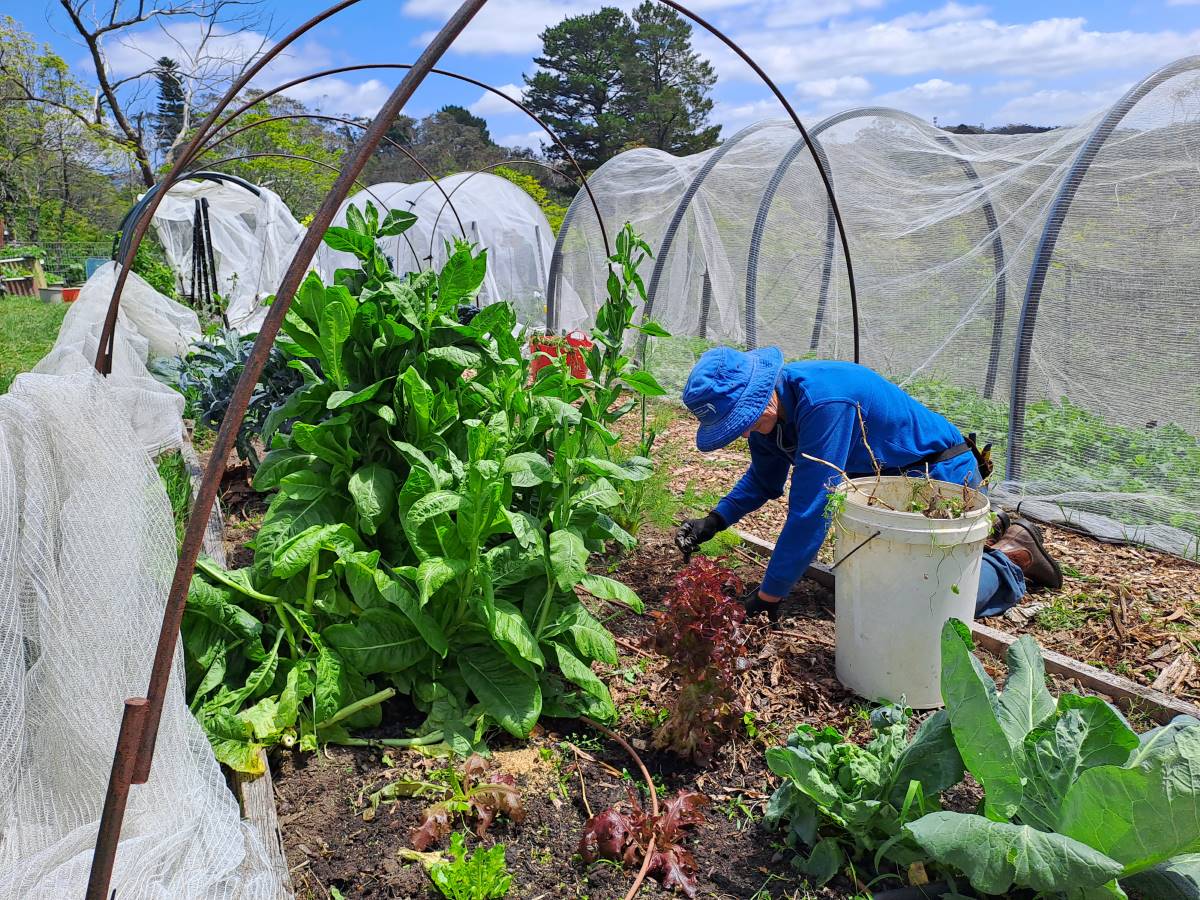
Janet pulling weeds in one of the veggie patches at Mid Mountains Community Garden
When I visited Mid Mountains Community Garden, a handful of volunteers were busily tending to multiple beds of fine produce. It was clear that while the gardens benefitted from their concerted effort, the people participating also benefitted.
Janet, one of the longest-attending members, shared with me some of things she loves about community gardening: “Learning more about gardening including water saving, seasonal rotation of plants and weeds versus veggies, enjoying the company of like-minded people, passing on knowledge to others, and sharing ideas.”
Kathy Husselbee from Wentworth Falls, who makes the trip down to Lawson to take advantage of the slightly warmer climate below Boddington Hill, added to that list: “Putting your hands in soil, socialising, having the chance to take home produce, and feeling like you’re on the good side. If you feel like you’re meeting people and doing something positive, it’s a good thing.”
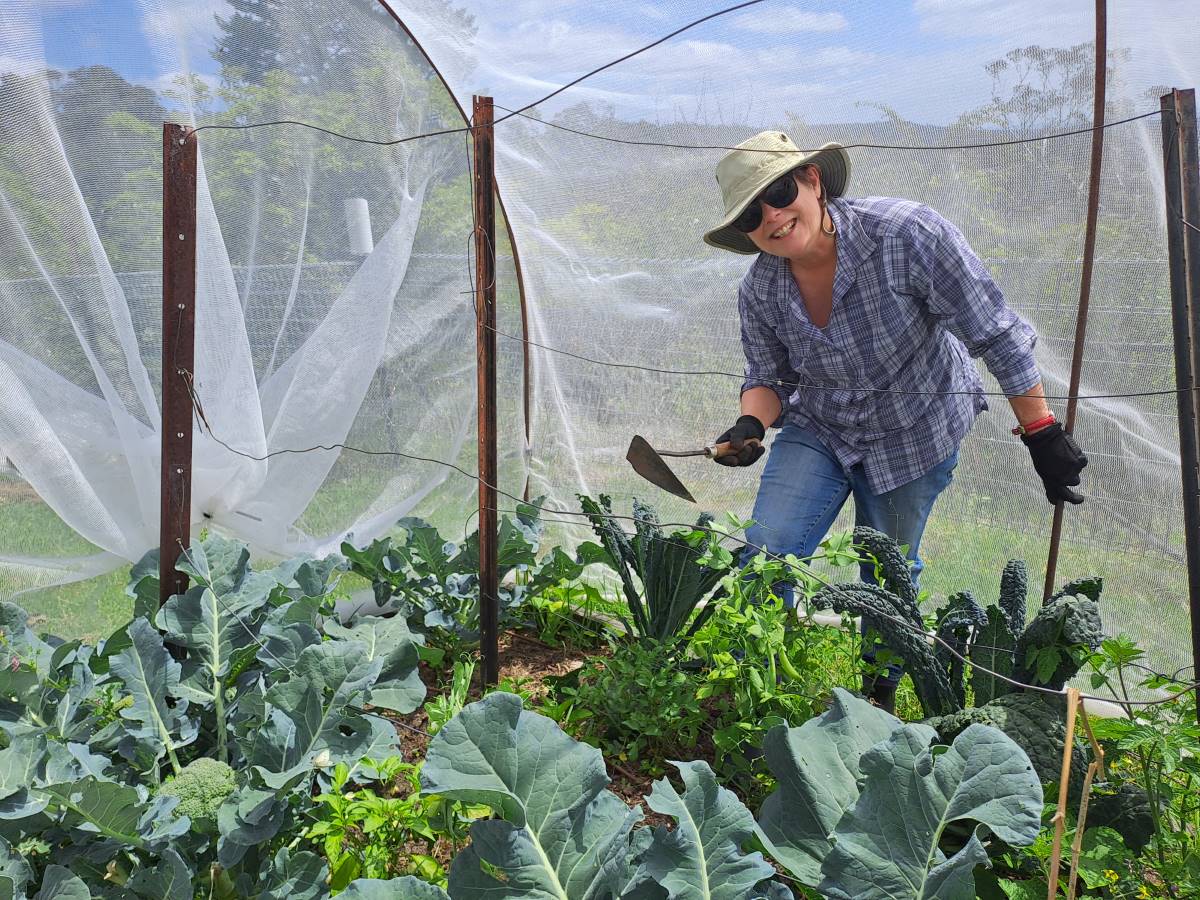
Kathy Husselbee comes to the Community Garden from Wentworth Falls
Another volunteer, Margaret Bell, joined the group during Covid, when a neighbour thought she needed cheering up. I asked her if participating in the Community Garden achieved that goal and she didn’t hesitate: “Oh yes, it cheered me up!” She added that as a vegetable lover, she greatly appreciates the opportunity to learn how to grow vegetables, which she wouldn’t otherwise be able to do due to a shady garden at home.
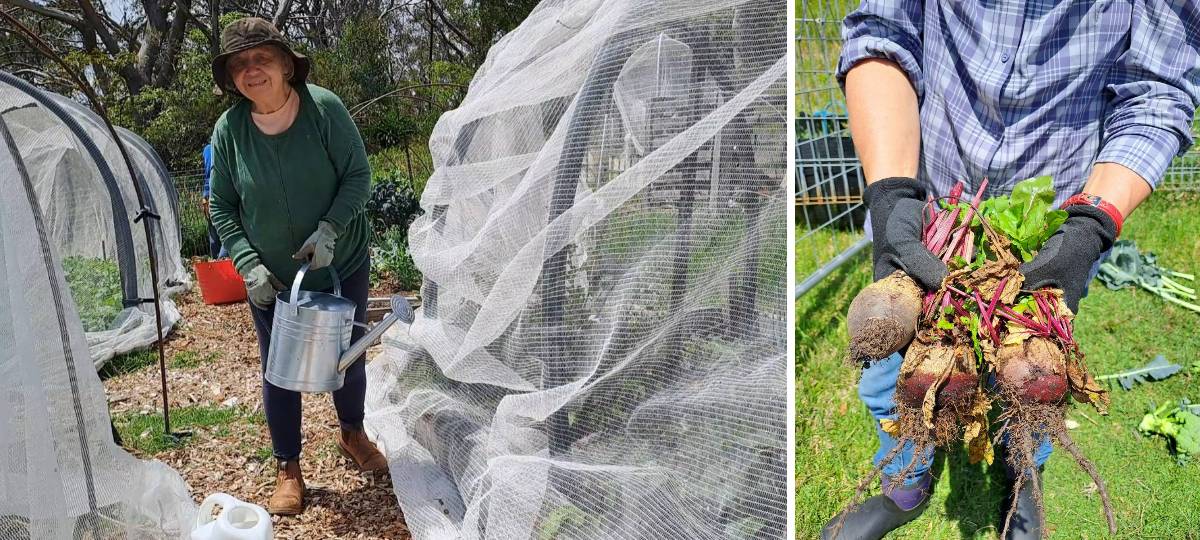
Left: Margaret Bell found that community gardening cheered her up during Covid. She’s been participating ever since. Right: Taking home tasty produce is one of the perks of participating in community gardening.
Knowledge sharing is a particular benefit of attending the gardening days, which take place every Saturday from 9am to 12pm. Volunteers come from a range of backgrounds and boast varying levels of expertise, with founding members like Ray Kennedy, a gardener by trade, and Janet, a local Bushcare volunteer of many years, bringing years of local experience to the group.
As a group, they work together to solve problems and improve systems. “One challenge we face is water and a warming climate,” said Kathy, explaining that one of the ways they are dealing with this problem is by creating wicking beds. With funding they received from participating in the Edible Gardens Trail, they created two wicking beds with different systems: one with irrigation pipe at the base, and one with washed river sand.
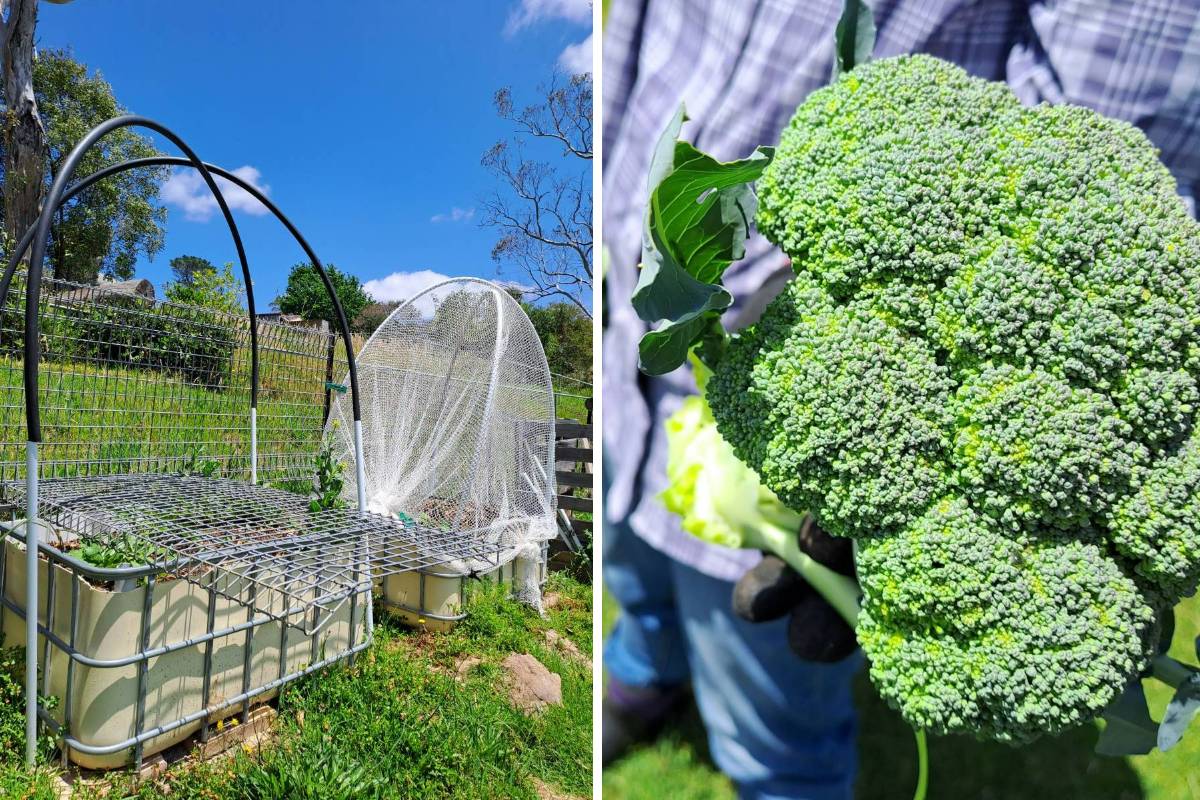
Left: Wicking beds are one way Mid Mountains Community Garden is facing the challenge of water management in a changing climate. Right: A beautiful head of broccoli picked from one of the patches.
In another effort to manage water, they installed a drip irrigation system connected to tank water. “When the weather gets hotter, we limit the amount of water via drip irrigation to get the plants used to less water,” said Ray.
Members have also worked hard to create a closed loop system that doesn’t rely on outside inputs. Janet explained that instituting a rotating green manure system on site has been worthwhile: “We are currently leaving one garden bed fallow each three months. Into this bed we plant a ‘green manure’ crop,” she said. “The intention is to rest the soil and to improve the soil health. I think it is working as our most recent crops seem to have grown quicker and to be flowering sooner.”
Ray added: “We use seeds with different functions [for the green manure]. Importantly, you need to dig it in before it flowers. When the plant flowers, all the goodness goes to the flower, so dig it in before then so that the goodness goes back into the soil. Since using this system, we haven’t needed to use any fertilisers, only green manure and we add in some worm juice.”
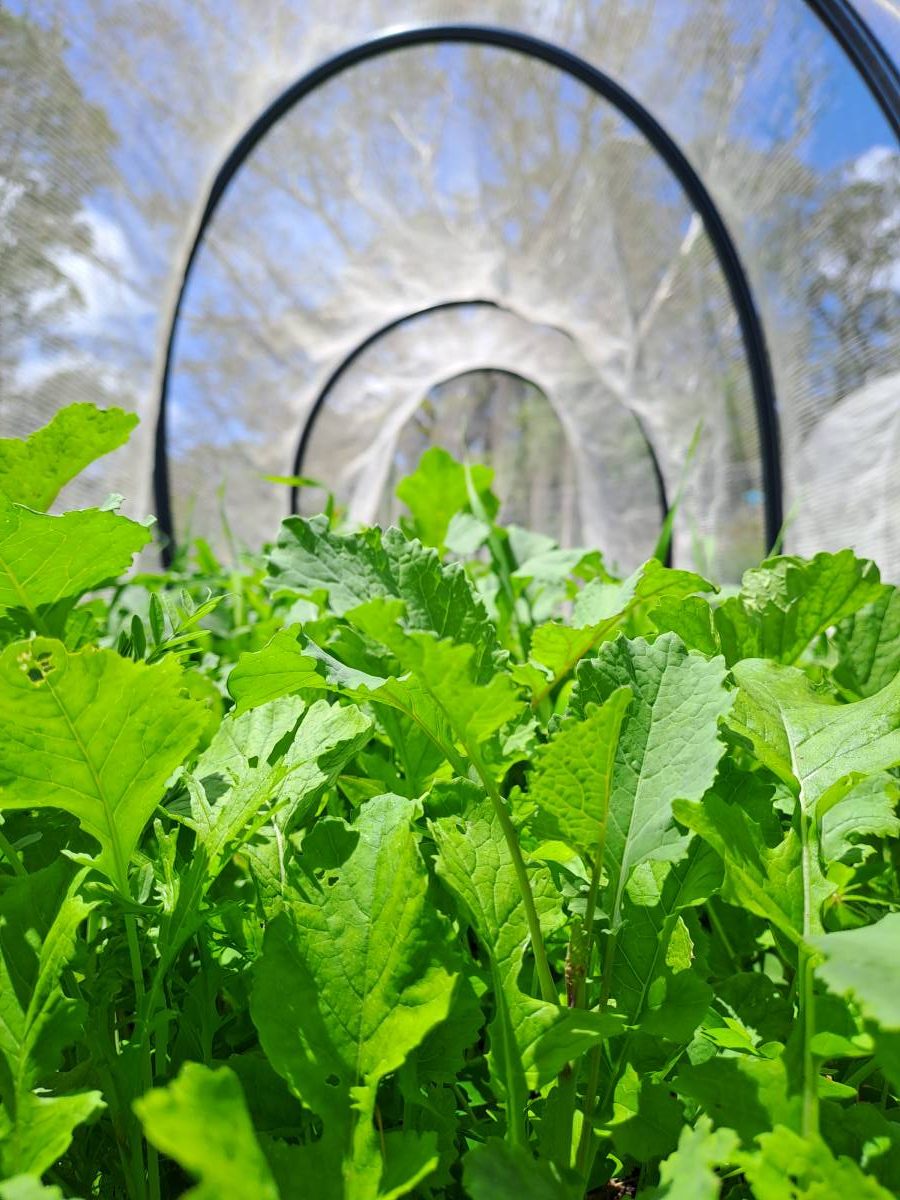
A lush ‘green manure’ that will soon be dug in to improve soil health.
In a world of ever-increasing personal busyness, as well as known and unknown environmental challenges ahead, community gardening just makes sense.
You can join Mid Mountains Community Garden simply by showing up on Saturday between 9am and 12pm. Get your hands into the soil, have a good chat, and leave with produce and knowledge, like Ray’s final advice to me before I left: “If you find a plant that works in a particular area, then get the seed, because it will continue to grow well there every time. It’s in their DNA to cope with the issues of that area.” A solid tip that can be applied to all veggie patch relationships.
Click to view a short 30-second video shot on a recent sunny Saturday
Take Action:
- Get involved at Mid Mountains Community Garden every Saturday between 9am-12pm at Kihilla Retreat & Conference Centre, 5-17 Queens Road Lawson NSW 2783 (Map & Directions)
- Learn more about community gardens, and find other nearby gardens at https://communitygarden.org.au/
- Get inspired on the 2024 Blue Mountains Edible Garden Trail, March 2-3. Learn more at https://www.katoombalocalnews.com/event/blue-mountains-edible-garden-trail/
Share this article:
This story has been produced as part of a Bioregional Collaboration for Planetary Health and is supported by the Disaster Risk Reduction Fund (DRRF). The DRRF is jointly funded by the Australian and New South Wales governments.
